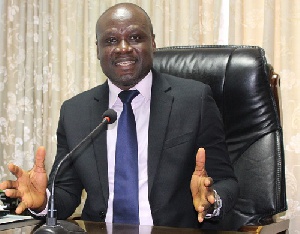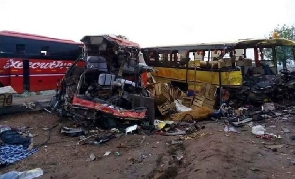The Ghana National Chamber of Commerce and Industry (GNCCI) has urged the Central Bank to tailor the banking and financial sector restructuring and expected growth to contribute to strengthening the real economy.
“It is the expectation of the Chamber that the current restructuring of the banking sector and the financial system will contribute to strengthen the real economy. There should be a concerted effort to ensure that growth in the banking sector commensurate with growth in the real economy including agriculture and industry.
More importantly, the transmission mechanism via which the financial sector relates to the real economy needs to be strengthened,” a statement signed by the Chamber’s CEO, Mark Badu-Aboagye, has said.
Mr. Badu-Aboagye, in the statement, also called on the BoG to strengthen its supervisory and regulatory mechanism.
“Officials from the BoG and the affected banks whose actions and inactions have resulted in this dire situation must be investigated and brought to book where necessary. Continuous inspection and enforcement by the BoG is critical in ensuring financial stability.
“The BoG, Government of Ghana, and all stakeholders need to learn from the current situation and work collectively to guard against the recurrence of these infractions and ensure that the financial sector develops in a sustainable manner with relevance for economic growth and development,” he said.
The Chamber also applauded the Bank of Ghana for taking such a bold and decisive initiative to prevent what would potentially have been a major crisis in the financial sector of the Ghanaian economy, of which the private sector would have been a major victim.
Even though the Chamber encourages the establishment of indigenous banks to play a major role in the financial sector of the Ghanaian economy, it recommended that interested Ghanaian investors in the banking industry should team-up their resources, both financial and human capital, to establish strong and profitable banks to withstand the vagaries of the highly competitive banking industry.
“These initiatives taken by BoG to ensure safe, sound and stable banking sector are critical and timely to maintain confidence in the financial sector and to ensure that private sector credit growth is unimpeded.
Businesses need credit to expand to be able to create more and better jobs. Owing to constraints faced by SMEs in accessing long-term credit from the capital markets, banks’ financial intermediation becomes essential. Any disruption in the banking sector affects the majority of businesses and individuals who rely on banks for their credit and investment needs,” Mr. Badu-Aboagye said.
The Bank of Ghana on Wednesday, 1st August, 2018 announced the revocation of licenses of five commercial banks including uniBank Ghana Limited, Sovereign Bank Limited, Construction Bank Limited, Beige Bank Limited, and The Royal Bank Limited.
The central bank subsequently created a bridge bank, the Consolidated Bank Ghana Limited, and transferred all deposits held by the five affected banks- including their assets and liabilities – to this new entity.
To give the new entity a clean bill of health, a GH?5.76billion bond was issued on the same day to clear the net liabilities of the five affected banks. A further GH?450million was provided as starting capital for the Consolidated Bank Ghana Limited.
An analysis of the cost from the seven banks’ collapse shows that the taxpayer will cough up a minimum of GH¢8billion – GH¢5.76billion – with respect to the bond issued to cushion Consolidated Bank and the GH¢2.2billion government doled out to settle the liabilities of UT and Capital Banks.
These actions came alongside the introduction of a raft of directives including the increment of banks’ stated capital from GH¢120million to GH¢400million with a December 2018 deadline; and enforcement of Basel II and III and IFRS9 banking rules and regulations – leading to some indigenous banks petitioning the Presidency for more time.
Business News of Tuesday, 14 August 2018
Source: thebftonline.com













